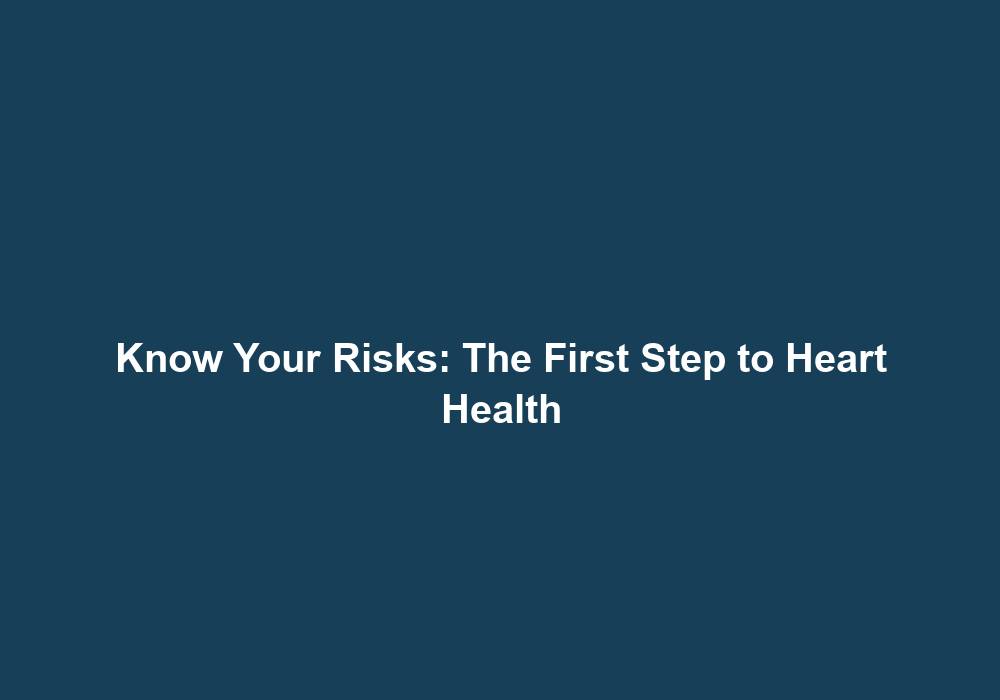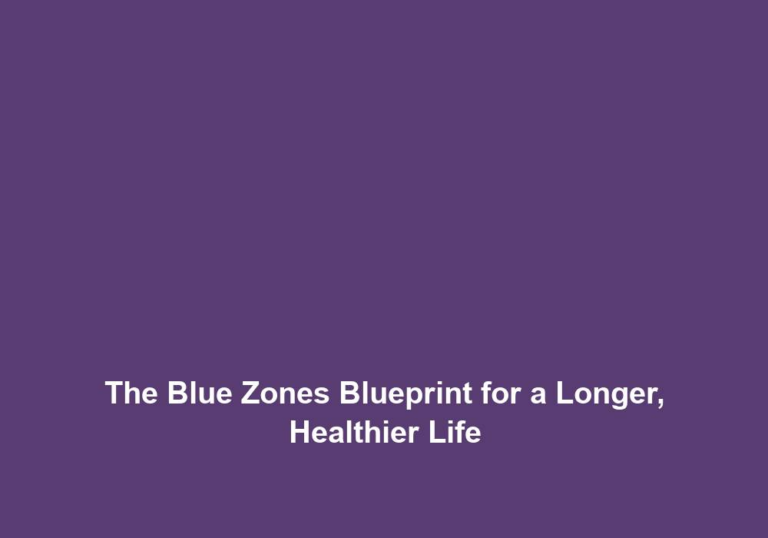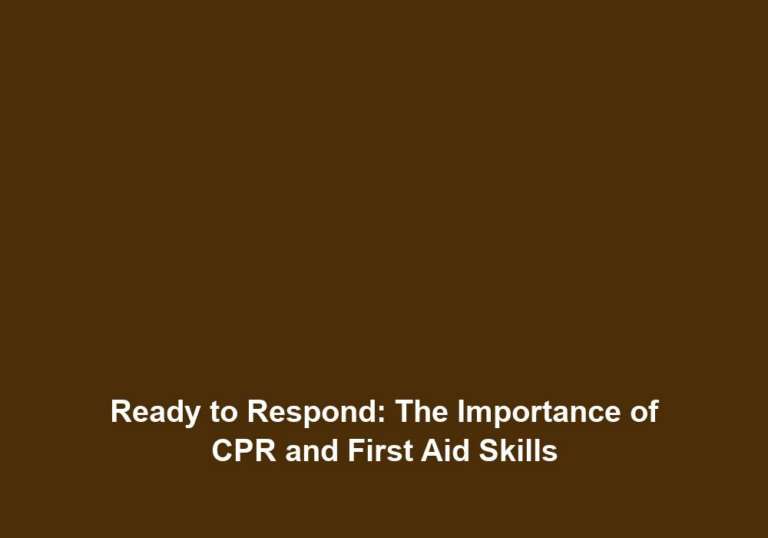Know Your Risks: The First Step to Heart Health
Heart health is a topic that affects millions of people worldwide. It is crucial to understand the risks associated with heart diseases and take necessary steps to prevent them. By being knowledgeable about the factors that contribute to heart problems, individuals can make informed decisions about their lifestyle and reduce the chances of developing cardiovascular issues. In this article, we will discuss the importance of knowing your risks and how it can be the first step towards maintaining a healthy heart.
Why Knowing Your Risks Matters
Understanding your risks allows you to take proactive measures to prevent heart diseases. By identifying the factors that may predispose you to heart problems, you can modify your lifestyle and make healthier choices. Prevention is key when it comes to heart health. By knowing your risks, you can take action before any major issues arise.
Knowing your risks increases the likelihood of detecting heart diseases at an early stage. Regular check-ups and screenings can help identify any underlying issues and enable timely intervention, leading to better outcomes and improved prognosis. Early detection is crucial in managing heart diseases effectively. By identifying any problems early on, you can take the necessary steps to prevent them from escalating.
Each person’s risk factors may differ, making it essential to know your individual risks. This knowledge empowers you to adopt a personalized approach to heart health, focusing on the factors that directly impact you. By understanding your specific risks, you can tailor your lifestyle choices and preventive measures accordingly. This personalized approach ensures that you are addressing the specific factors that put you at risk for heart diseases.
Common Risk Factors for Heart Diseases
Several risk factors contribute to the development of heart diseases. By being aware of these factors, you can take appropriate actions to mitigate the risks. Some common risk factors include:
1. High Blood Pressure
High blood pressure, also known as hypertension, is a significant risk factor for heart diseases. It puts strain on the heart and blood vessels, increasing the likelihood of heart attacks, strokes, and other cardiovascular conditions. Regular monitoring of blood pressure levels and maintaining a healthy lifestyle can help manage this risk.
- Keep track of your blood pressure readings and consult with your healthcare provider regularly.
- Follow a low-sodium diet to help manage your blood pressure.
- Engage in regular physical activity, such as brisk walking or swimming, to maintain a healthy weight and reduce the risk of high blood pressure.
2. High Cholesterol
Elevated cholesterol levels, especially high levels of LDL (low-density lipoprotein) cholesterol, can contribute to the formation of plaque in the arteries, leading to narrowed blood vessels and reduced blood flow to the heart. A balanced diet, regular exercise, and medication if necessary, can help control cholesterol levels and reduce the risk.
- Include heart-healthy foods in your diet, such as fruits, vegetables, whole grains, and lean proteins.
- Limit your intake of saturated and trans fats, which can raise cholesterol levels.
- Engage in aerobic exercise, such as jogging or cycling, to increase your HDL (high-density lipoprotein) cholesterol levels and lower LDL cholesterol levels.
3. Smoking
Smoking is a significant risk factor for heart diseases. It damages the blood vessels, reduces oxygen supply to the heart, and increases the likelihood of blood clots. Quitting smoking is one of the most effective ways to improve heart health and reduce the associated risks.
- Seek support from healthcare professionals or support groups to help you quit smoking.
- Consider nicotine replacement therapy or medications to aid in smoking cessation.
- Engage in activities that distract you from cravings, such as exercising or pursuing a hobby.
4. Obesity and Physical Inactivity
Being overweight or obese and leading a sedentary lifestyle are additional risk factors for heart diseases. Excess weight puts strain on the heart and increases the chances of developing conditions such as high blood pressure, diabetes, and high cholesterol. Regular physical activity and maintaining a healthy weight are crucial for a healthy heart.
- Aim for at least 150 minutes of moderate-intensity aerobic exercise or 75 minutes of vigorous-intensity aerobic exercise every week.
- Incorporate strength training exercises at least twice a week to build and maintain muscle mass.
- Follow a balanced diet that includes a variety of nutrient-rich foods and limits added sugars, saturated fats, and processed foods.
5. Diabetes
Diabetes is closely linked to heart diseases. People with diabetes are more likely to develop cardiovascular problems due to high blood sugar levels damaging the blood vessels and nerves. Proper management of diabetes through medication, a balanced diet, and regular exercise can significantly reduce the risk.
- Monitor your blood sugar levels regularly and work with your healthcare provider to keep them within the target range.
- Follow a diabetes-friendly diet that focuses on whole grains, lean proteins, fruits, vegetables, and healthy fats.
- Engage in regular physical activity to improve insulin sensitivity and manage blood sugar levels.
6. Family History
A family history of heart diseases can increase your risk. If your parents or close relatives have had heart problems, you may have a genetic predisposition to certain conditions. While you cannot change your genetics, being aware of your family history can prompt you to take preventative measures and adopt a heart-healthy lifestyle.
- Talk to your family members about their medical history and any heart-related conditions.
- Inform your healthcare provider about your family history to assess your risk more accurately.
- Focus on lifestyle modifications, such as a healthy diet and regular exercise, to reduce your overall risk.
7. Stress and Mental Health
Chronic stress and poor mental health can impact heart health. Stress increases blood pressure and releases stress hormones that can damage the heart and blood vessels over time. Adopting stress management techniques, seeking support, and taking care of your mental well-being can contribute to a healthier heart.
- Practice stress-reducing techniques, such as deep breathing exercises, meditation, or yoga.
- Engage in activities that you enjoy and help you relax, such as listening to music or spending time in nature.
- Consider seeking professional help or joining support groups to address any underlying mental health issues.
Taking Control of Your Heart Health
Now that you are aware of the common risk factors, it is essential to take control of your heart health. Here are some steps you can take:
-
Regular Check-ups: Schedule regular visits to your healthcare provider for check-ups, screenings, and assessments of your heart health. These check-ups can help identify any potential issues and allow for timely interventions.
-
Know Your Numbers: Get familiar with your blood pressure, cholesterol levels, and blood sugar levels. Understand what the ideal ranges are and work towards maintaining them. Regular monitoring of these numbers can help you track your progress and make necessary adjustments.
-
Make Healthy Lifestyle Choices: Adopt a heart-healthy lifestyle by eating a balanced diet, engaging in regular physical activity, maintaining a healthy weight, and avoiding smoking. These lifestyle choices can significantly impact your heart health and reduce the risk of developing heart diseases.
-
Manage Stress: Incorporate stress management techniques into your daily routine. Practice relaxation exercises, meditation, or engage in activities that bring you joy and reduce stress. Finding healthy ways to cope with stress can have a positive impact on your heart health.
-
Stay Informed: Stay updated with the latest research and information on heart health. Educate yourself about new developments and treatments to make informed decisions. Being knowledgeable about heart health can help you make proactive choices and stay ahead of any potential risks.
-
Seek Support: If you have concerns or questions about your heart health, don’t hesitate to seek support from healthcare professionals, support groups, or online resources. Connecting with others who have similar experiences can provide valuable insights and encouragement.
By taking these steps, you can prioritize your heart health and reduce the risks associated with heart diseases. Remember, knowledge is power when it comes to maintaining a healthy heart.
This article is provided in markdown format for the given title.







